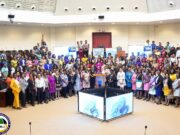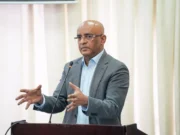Dear Editor,
The post-World War II period was a time of colonial fatigue, when mother countries were growing weary of the burden of managing territories in far-flung exotic locations, but not of the agricultural and industrial raw materials that they provided. Coincident with this, emerging leaders in the colonies had also begun to agitate for independence, inspired by visionaries such as of Marcus Garvey of Jamaica and Mahatma Gandhi of India.
The attractiveness of multilateralism – basically, strength in numbers – was not lost on these new leaders in the ex-colonies: first came the Non-Aligned Movement, established in 1961 as the outcome of the Bandung Conference of 1955 and then the Group of 77 in 1964.
As regard the integration of these emerging states into the global economy, and in the specific area of commodities, developing countries saw the challenge of their economic future as still being tied to market access in the Metropoles, in spite of their hard-won political independence. Using their common concerns as a rallying point, the ex-colonies of Britain, France, Portugal, Spain and Germany, spread across Africa, the Caribbean and the Pacific, decided to unite and speak with one voice. They were determined to alter the asymmetry of production where all the value was added in factories and production centres in Europe. Further, market manipulation of commodity prices and insurmountable competition only served to exacerbate their efforts to trade themselves out of poverty.
Led by negotiation giants like our own, the late Sir Shridath Ramphal and the Most Honourable Percival J. Patterson of Jamaica, this coalition of like-minded states began to organize and meet as a collective in order to raise their concerns over market access for commodities into Europe, in areas such as the agricultural sector in sugar, bananas or cocoa, or bauxite and other precious metals. The intention was to bring about a change in the relation of economic dependency between the ACP(African, Caribbean and Pacific) states and Europe, through a framework of preferential trade and aid.
At the same time, Guyana’s diplomats had started to assert themselves in various international fora, “punching above its weight class” as it were, and garnering respect and commendation from both developed and developing countries. As a consequence, Guyana was elected to the UN Security Council for the first time from 1975-76, a feat which was repeated, remarkably for a small developing nation, just six years later in 1982 (four decades later, we are now once again on the UNSC for the two-year term which ends in December 2025).
The result of these negotiations was the signing of the first Lome Agreement with what was at the time the European Economic Community, in February 1975. Thereafter Guyana, capitalizing on its favourable international profile, took the initiative of hosting a meeting of these developing countries in June 1975, to finalise institutional arrangements to place them on a more formal and structured relationship with the EEC. Thus the Georgetown Agreement establishing the ACP Group of States, headquartered in Brussels, Belgium, was concluded on 6 June 1975 – 50 years ago today.
This was a watershed moment in relations between these significant groups of developed and developing countries; unlike the Commonwealth, which is a closed club of former British colonies (La Francophonie is the French equivalent) the ACP straddles the 79 ex-colonies of all of Colonial Europe.
I have heard of no plans to commemorate this solemn occasion in Georgetown today. When I was employed at the ACP Secretariat, June 6 was an important day in Brussels, marked by speeches, addresses by dignitaries in the ACP Committee of Ambassadors, and a grand cultural evening later at ACP House.
It would perhaps have been fitting to organize various activities here today such as:
i) a symposium or Panel Discussion on “The ACP at 50”, reviewing the half-century of relations between the ACP States and the EU and looking ahead as well. Such personages as Mr. Carl Greenidge, who served as Deputy Secretary General and briefly as Acting Secretary General of the ACP Secretariat, and also as President of the ACP Council of Ministers, Ambassador Rene Van Nes, the resident EU Ambassador in Georgetown, and former Guyana Ambassador to Belgium Mr. David Hales would have been headliners;
ii) a statement or public address marking the occasion by the Head of State and/or a zoom telephone call between the Foreign Minister and the Secretary General of the ACP Group;
iii) an essay competition or a debate for senior high school students, examining the pros and cons of Guyana’s membership in the ACP Group; and
iv) a cultural evening at the Umana Yana, which in fact had been built as a VIP lounge for Ministers attending the 1972 Non-Aligned Foreign Ministers’ Meeting and was used again for the 1975 meeting on the Georgetown Agreement.
At the ACP Secretariat, the coding system on the cover sheet of documents included the initials of the Officer responsible for and the secretarial staff involved in preparing the document. Hence for quite a few years the first revision of the Georgetown Agreement, which I had drafted while I was Legal Counsel, bore as its code the initials NJB/mf, the latter being those of my secretary Madame Maimouna Fall, who hailed from Mauritania.
The Georgetown Agreement has been revised since then and the Group is now known as the OACPS – the Organisation of African, Caribbean and Pacific States; this text bears the initials of my successor. However, it would still have been for me and indeed, I believe, for this nation, an occasion for reflection and celebration, to commemorate the auspicious occasion of the 50th Anniversary of the conclusion of the Agreement which derives its title from our capital Georgetown. After all, anniversaries like these don’t come every day.
Yours faithfully,
Neville Bissember











